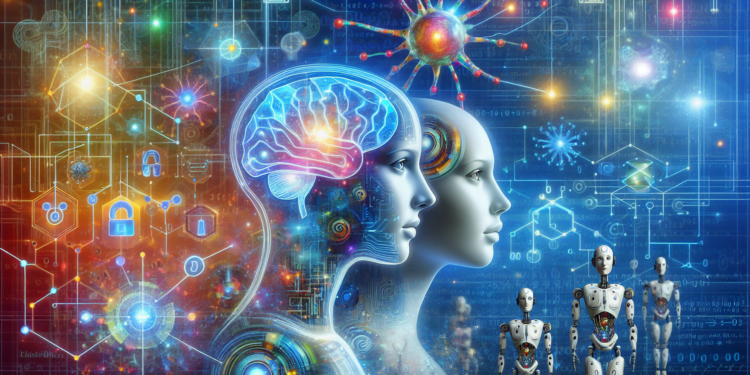Artificial Intelligence (AI) is a dynamic and constantly evolving field that drives significant transformations across numerous sectors. To stay abreast of the latest advances and facilitate a deeper understanding of this complex domain, a glossary is presented that covers everything from fundamental theories to recent advancements, including practical applications.
Genetic Algorithm
This is an optimization and search procedure based on the principles of genetics and natural selection. Genetic algorithms are useful for solving problems with solution spaces that are too large for exhaustive searches.
Machine Learning (ML)
A branch of AI that enables systems to learn and improve from experience without being explicitly programmed. ML uses algorithms to analyze data, learn patterns, and make decisions.
Deep Learning (DL)
A subset of machine learning inspired by the structure and function of the human brain, known as artificial neural networks. DL is particularly effective in perception tasks, such as speech and image recognition.
Artificial Neural Networks (ANN)
Computational models designed with reference to the functioning of the central nervous system, particularly the brain, to process information. ANNs consist of units, called “neurons,” interconnected with each other.
General Artificial Intelligence (AGI)
A form of artificial intelligence that can understand, learn, and apply its intelligence to solve any problem, similar to the cognitive capabilities of humans. AGI remains a long-term goal within AI research.
Expert Systems
AI systems designed to emulate the decision-making abilities of a human expert. They use knowledge bases and inferential reasoning to solve complex problems within a specific domain.
Computer Vision
An AI field that deals with how computers can gain a high-level understanding from digital images or image sequences. Applications include facial recognition, industrial inspections, and autonomous vehicles.
Natural Language Processing (NLP)
A branch of AI that focuses on the interaction between computers and human language. It involves the understanding, interpretation, and generation of natural language by machines.
Intelligent Agents
Software or hardware entities that act autonomously to perform specific tasks on behalf of a user or program. They have the ability to learn and adapt to new environments.
Cognitive Robotics
An area of research involving the use of AI techniques to endow robots with cognitive abilities, enabling them to reason, learn from experience, and act independently in unpredictable environments.
Knowledge Representation
Methods for structuring information so that computers can process, interpret, and use knowledge to perform complex tasks.
Automated Reasoning
The ability of computers to apply logic and reason about information to solve problems, prove theorems, or make decisions.
Ethical AI
A subfield of AI that addresses the ethical issues arising from the creation and use of AI systems. This includes topics such as transparency, accountability, and dilemmas in autonomous decision-making.
Edge Computing in AI
A processing paradigm where AI intelligence is implemented in peripheral devices (near user). This allows for faster processing and decision-making by being close to the data sources.
These definitions form the fundamental basis for understanding current and emerging theories and applications in the realm of artificial intelligence. By examining contemporary case studies, for example, the use of deep learning techniques to accelerate drug discovery, one can see how these terms interrelate in concrete AI practices.
In summary, understanding these terms and concepts is essential for any professional wishing to progress in the field of artificial intelligence. Each one represents a specific area of research and development that, collectively, form the fibers of the fabric of this expanding technical field. As AI continues to evolve, it is expected that new terms and definitions will emerge, further expanding the lexicon and reflecting the innovative and changing nature of artificial intelligence.






















